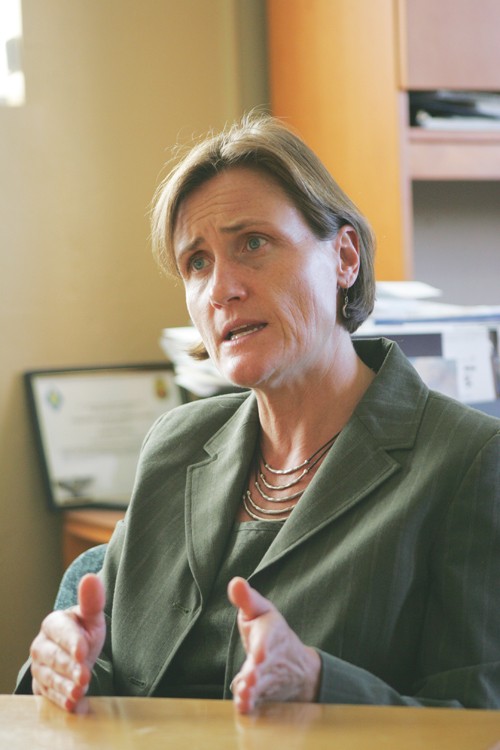Ward 3 representative Karin Uhlich is running for reelection to the Tucson City Council in the Nov. 3 primary election. The Daily Wildcat sat down with Uhlich to discuss her campaign and her previous work with the university. Uhlich said retention of university graduates will have an important role in stimulating the local economy. In terms of economic development, she emphasized local businesses supporting private industry through development fees rather than raising taxes on local residents.
Q: What do you perceive to be the relationship between the university and the city council?
A: I think it’s improving and there is a lot of fertile ground ahead of us in terms of partnerships and collaboration. … The university and students are an important part of the city and we need to make sure that students, when they come to Tucson, feel like a part of Tucson and not separate from what is happening.
Q: Have you done any specific collaboration work with the university over the last few years?
A: Yes, we have really done some great projects together. Some of them have had to do with addressing the tensions between residents around the university and students living in those neighborhoods.
We have done a couple things with the fraternity and sorority groups and some of the service organizations. For example, we had a great cleanup project where students, to their credit, volunteered time to go through the neighborhoods and do some cleanup.
We also hang door hangers on all doors around the university so students aren’t caught off guard. We don’t want students to ask, “”What’s a red tag?”” It’s not fair to hold people to a standard when they aren’t informed. So we have done a lot of work to make sure information gets to students.
Q: You’ve been in office in Tucson since 2005. How does your track record show that you are the right woman for the job?
A: Well, first of all I want to be judged on my record. I made certain promises when I ran for office and I believe I have delivered on them. I can share a few those with you.
One of those was that meth was a big problem in Tucson in 2005. I pushed for passing a law that pulled Sudafed products off of shelves. It’s a necessary ingredient for meth. The attorney general and the state have acknowledged that this ordinance alone has really helped to prevent home meth labs from springing up.
The second thing was making sure that as Tucson grows and develops we have impact fees that development pays instead of burdening residents with more taxes and fees. So basically I campaigned on making growth pay for itself.
Q: Public safety is an issue that concerns students. If elected, what are your plans to lower the crime rate?
A: We have made good progress on this but we aren’t done.
Violent crime is actually down in Tucson by 20 percent since 2005. Property crime is down 7 percent since 2005. That’s a good trend, but we have to keep moving in that direction. A lot of that has to do with a community policing model. You can’t arrest the problem away. It boils down to teaching people how to keep themselves safer.
Q: What are your plans to incentivize development between the university and city?
A: We have been doing a lot of work with the university on two main things. First, the streetcar connection between the UA and downtown. Transit is a key thing.
The other thing has to do with student housing. I think we need more students living downtown. We want it to be easy for them to hop on the rail and get to campus.
In addition, we are talking with the university about relocating some of their departments downtown. Landscape architecture is one school where we have identified a building that we think could be a good fit. Hopefully, we will begin the process of moving the school to the Walgreens building downtown in the next couple of years.
Q: City infrastructure — do you have a specific plan for fixing roads around campus?
A: It has been a huge challenge, especially with this budget downturn. Public safety is our number-one priority. We insulated public safety from cuts when the economy tanked, therefore we had to suspend some of our street paving due to limited resources.
Impact fees help to some extent because anytime there is new development an additional fee is charged to the developer. The fees are based on the cost of any roadway improvements and additional parks that might be needed to accommodate new residents. We need those resources, every other city in Arizona and many cities across the country utilize this system. It’s a real common way of keeping up on infrastructure.









